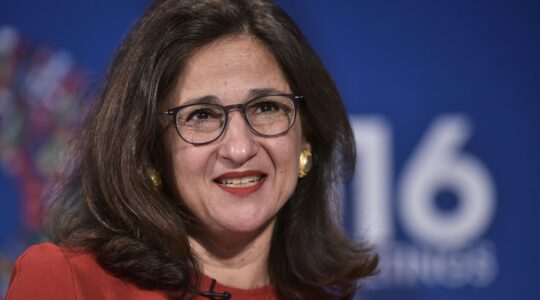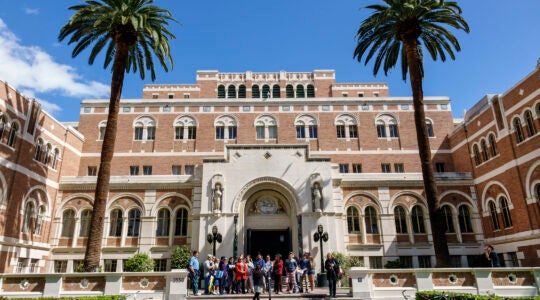WASHINGTON (JTA) — Jewish groups were divided over the Supreme Court’s latest church-state ruling allowing public funding of religious institutions’ secular activity.
On Monday, the court ruled 7-2 that the state of Missouri should not have denied Trinity Lutheran Church a grant to build a children’s playground because of the church’s status as a religious institution, since it met the criteria for the state program.
The Orthodox Union, which filed a friend-of-the-court brief in the case, praised the ruling.
The ruling “puts state aid to synagogues (and other houses of worship) and parochial schools for security and safety measures on an explicit and solid constitutional footing,” Nathan Diament, director of the Washington O.U. Advocacy Center, said in a statement. “The chief justice’s majority opinion makes it clear that a state may not exclude an institution from a neutral government benefit program because of the institution’s religious status.”
Justice Stephen Breyer, in a concurring opinion, wrote that the state may not cut off a religious institution from “‘a general program designed to secure or to improve the health and safety of children’ without running afoul of the Constitution.”
Justice Sonia Sotomayer said in her dissent that the court’s decision “profoundly changes” the relationship between church and state by saying that the Constitution requires the state to directly fund a church project.
“Its decision slights both our precedents and our history, and its reasoning weakens this country’s longstanding commitment to a separation of church and state beneficial to both,” she wrote in the dissent that also was signed by Justice Ruth Bader Ginsburg.
Mark Bane, president of the Orthodox Union, said in a statement that his organization expects “the ruling to assist us in expanding the number and type of [government] programs which aid faith communities with their safety costs.”
The Anti-Defamation League, in conjunction with seven other groups, presented a friend-of-the-court brief going against the ruling.
“Justice Sotomayor’s dissent got it right – this case is about much more than a state program to use recycled tires to resurface a playground,” the group’s CEO, Jonathan Greenblatt, said in a statement.
The statement added: “Although the decision is narrowly focused, the U.S. Supreme Court appears to have taken a disturbing step back from this commitment today.”
Barbara Weinstein, director of the Commission on Social Action of Reform Judaism, issued a statement on behalf of the movement defending Missouri’s decision to honor the church-state divide, saying that religious institutions could face “government infringement if they are competing against each other for government grants.”





